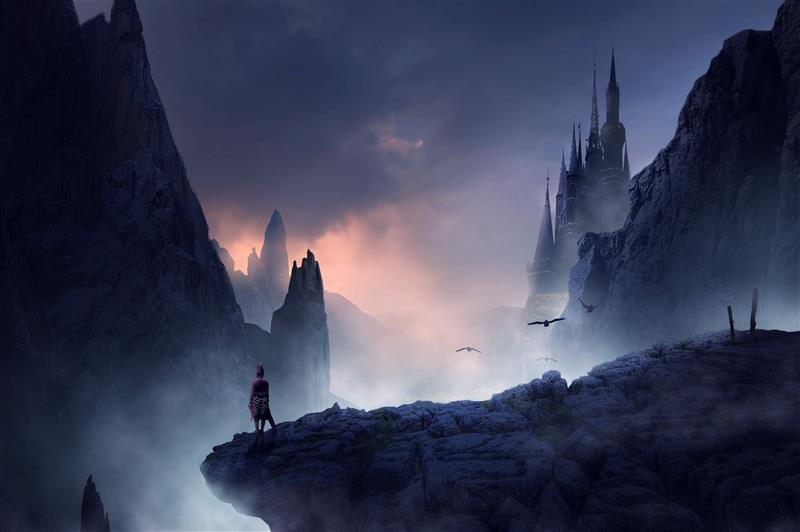
It is deeply unfashionable to speak of ‘Dark Ages’ these days. We may use words such as ‘change’, ‘transformation’ and ‘revolution’, but notions such as ‘decline and fall’ are frowned upon, and describing a period of history as ‘dark’ has come to be considered borderline offensive to all those who had the misfortune to be born outside of a Golden Age – though it might be time to dispense with that one, too.
I am of the old-fashioned school that believes in cultural flowerings and protracted withering. Looking back through history, it seems difficult to deny that genius often comes in spates and then not at all. I give you the Renaissance, the Age of Enlightenment, Modernism. The centuries which followed the Fall of Rome, by contrast, are prime contenders for the Dark Age appellation.
A warning from ages past
When a debate was held at the Cambridge Union a few years ago on how regrettable the collapse of Rome really was, I argued that the standard of living endured by the majority of people across the former empire – in the wake of its fall – was far inferior to that enjoyed under the emperors. I took the fact that my side emerged from the debate victorious as an endorsement of the concept of a Dark Age.
We are, I fear, at the beginning of a Dark Age now. Classicists are all too aware of the signs. The poets of ancient Greece and Rome spoke of five progressively worse ages of man. According to Hesiod, who lived in central Greece in the 7th century BC, an idyllic Golden Age, in which men lived wholesomely and fruitfully and in company with the gods without needing to work or farm, segued into a Silver Age, which was not nearly so good but still better than the Bronze Age, which superseded it and resulted in the murder of one man by another.
The Heroic Age marked an improvement – the sons of gods covered themselves in glory on the battlefield of Troy – but did not last. The Iron Age which replaced it was characterised by rampant disease, inhumanity, hard work for little gain, and a growing disregard for religious observance.
Recognising the signs
The beginning of this Iron Age coincided roughly with what modern historians labelled the Dark Age. The period opened with the collapse of Mycenaean civilisation after about 1200 BC and ended with the rediscovery of writing and large-scale building in Greece in the 8th century BC. As usual, the word ‘dark’ was applied because relatively few historical artefacts survive to sate our curiosity, but the Greek historian Thucydides described it further as a time of mass migration, of minimal commerce and communication between nations, and introspection.
This Dark/Iron Age feels horribly familiar. The recent ILO Global Wage Report shows that real wage growth has been lower than productivity growth since 2000 across the 52 high-income countries examined. Last year, the gap between productivity growth and wage growth was the widest it’s been since the century began. In the 2021 census for England and Wales, the number of people who indicated that they have ‘no religion’ rose to 37.2 per cent (22.2 million), a 12 per cent rise on the figure for 2011.
In denial
Dark Age deniers may point to scientific and technical innovations, including the swift development of mRNA vaccines against Covid-19, but the pandemic itself has hampered many other lines of research, divided nations, ransacked government finances and slowed development. Culturally we are stuck in a rut, too. If the 1960s were the Golden Age of our lifetimes in that sense, the 2010s were undoubtedly Iron, if we can merit them with an identity at all.
Dark and Iron Ages have an unfortunate habit of enduring. The poets of antiquity were generally of the view that they were still living in an Iron Age 600 years after Hesiod first said they were. When Augustus became the first emperor of Rome, some claimed propagandistically that the Iron Age was over and the Golden Age had finally returned. ‘Golden’ was too much of a leap, but life was certainly better for many than it had been in the dying days of the civil war-ravaged Late Republic.
It often takes a peak to confirm that we have been living in a trough, and a trough to help us realise what the Golden Age actually looked like.






